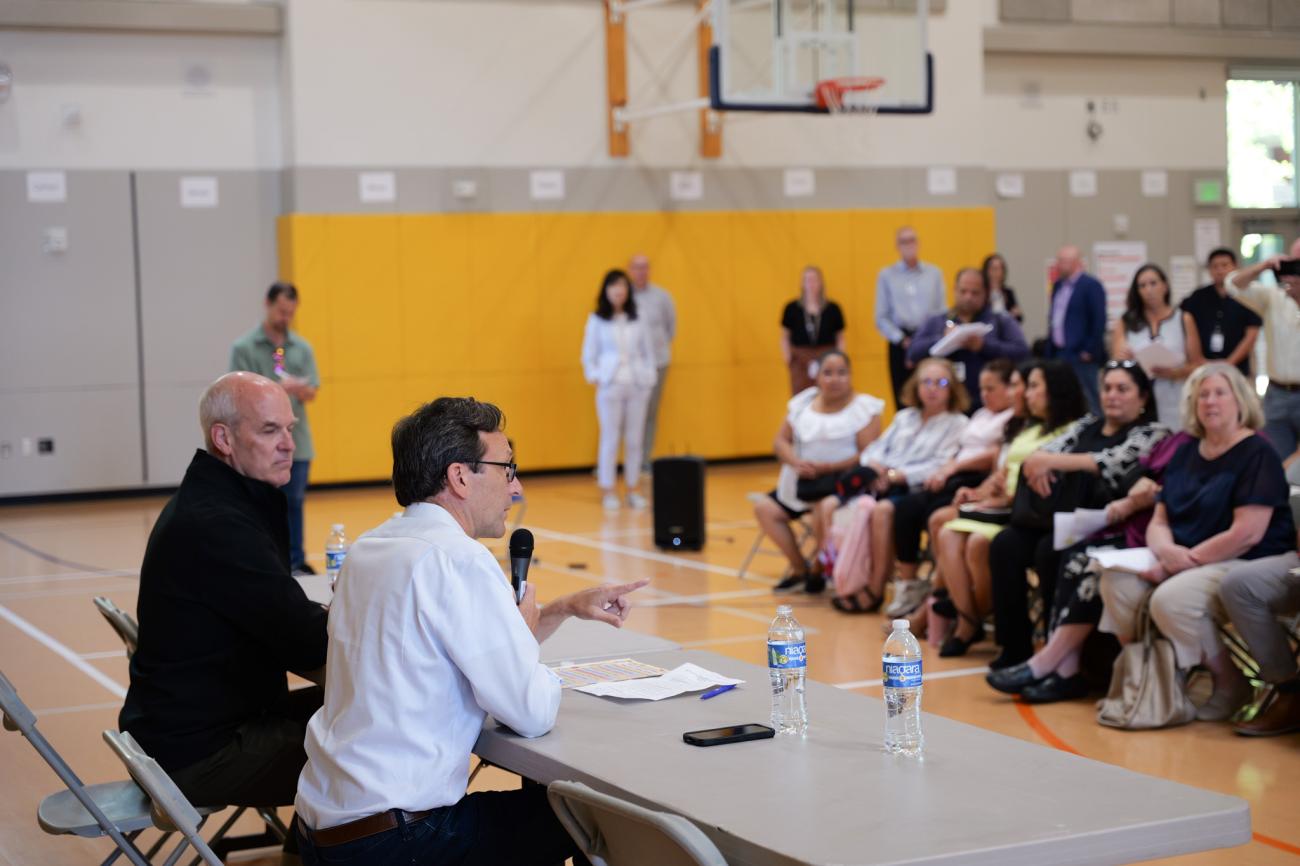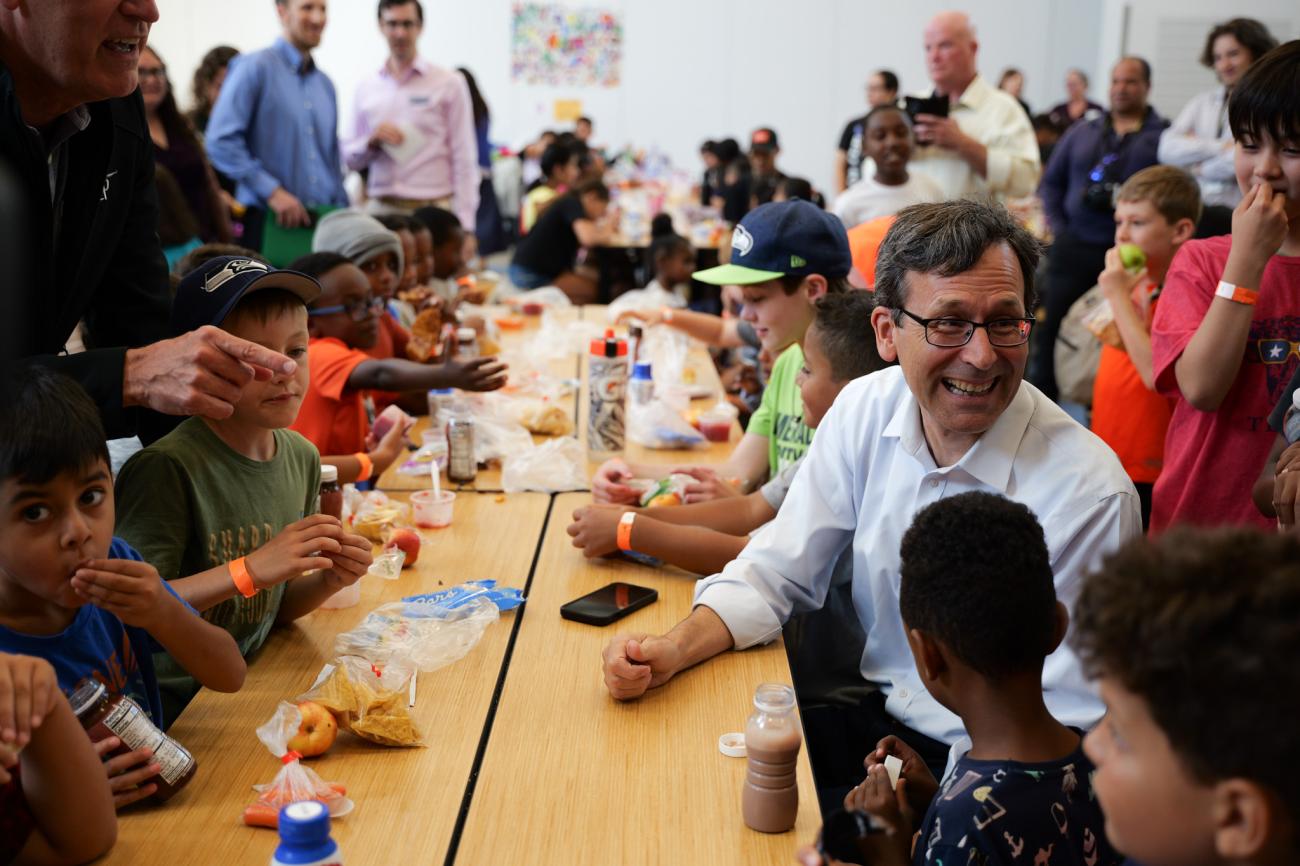Families, school officials share personal stories during Lynnwood Elementary listening session

LYNNWOOD — At a listening session Thursday at Lynnwood Elementary School, Governor Bob Ferguson joined U.S. Rep. Rick Larsen and impacted community members to discuss the devastating impacts of federal cuts to food assistance programs, including the Supplemental Nutrition Assistance Program, or SNAP.
During the site visit to a local summer meals program, Governor Ferguson and Congressman Larsen served bagged lunches to children. Then, they heard personal stories from families, local nonprofits and Edmonds School District staff about how the Trump Administration’s attacks on the social safety net are disrupting efforts to feed hungry kids.
“The Trump Administration’s attacks on safety net programs like SNAP harm our most vulnerable Washingtonians, all to pay for tax breaks for the wealthiest Americans,” Governor Ferguson said. “This is not only morally wrong, it harms Washington’s economy and puts a strain on other programs that support our kids. We will continue to protect Washingtonians from these cruel policies.”
“President Trump and Republicans are attacking food assistance here in Northwest Washington state and across the country,” Rep. Larsen said. “The long-term consequences of hungry families and children are profound. Not getting proper nutrition impacts kids’ ability to grow up strong and healthy. It impacts kids’ ability to focus in class. It impacts kids’ ability to play sports. Republicans are making these cuts because they do not care about working families. They care about the richest Americans and the largest corporations, and the Big Ugly Law is a clear indication of that.”
Approximately 1 million Washingtonians use SNAP benefits every month to purchase food. Thirty-four percent of Washingtonians who rely on SNAP benefits are children. As a result of the budget bill passed by Congress last month, known as H.R. 1, every Washingtonian who relies on SNAP will see their benefits reduced. At least 137,000 Washingtonians are at risk of losing their SNAP benefits altogether, due to new work requirements. H.R. 1 also made refugees and asylum seekers ineligible for assistance, affecting approximately 33,000 people.
The cuts will also cause ripple effects throughout the economy and put a strain on other food assistance programs, such as school districts’ free and reduced lunch programs.
The USDA estimates that every $1 in SNAP benefits generates more than $1.50 in local economic activity. The losses in SNAP spending will translate to $360 million annually that will not be spent at grocery stores, farmers markets and other retailers. Downstream that affects the workers at grocery stores and markets, as well as the farmers who supply them.
The SNAP cuts will also shift the administrative burden to Washington state. Specifically, when the state share of SNAP benefits starts Oct. 1, 2027, it could cost the state between $100 million and $300 million per year.



